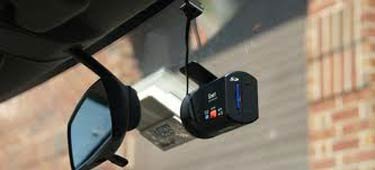Elites, Having Gotten Their Way, Condescendingly Propose Tolerating Dissent
Andrew Sullivan, Community of Fashion, Gay Marriage, Hypocrisy, Liberaltarians, The Elect, The Pseudo-Intelligentsia
Same Sex Marriage, in the typical way culture war victories are won, is on the way to becoming the law of the land by the well-worn route of advocacy by a left-wing avante-garde, followed by conversion into a class indicator by the community of fashion, with a final victory effected by legislation from the judicial bench.
When the powers-that-be at Mozilla proceeded to defenestrate newly-appointed CEO Brendan Eich for the thought crime of having previously donated $1000 in support of Proposition 8, it all began getting a bit too heavy-handed for Andrew Sullivan, the formerly conservative Limey poof who more or less invented the notion of Gay Marriage, who quickly editorialized against black listing dissenters.
Having, somewhat unexpectedly, found themselves effectively getting their way, bursting through ineffective opposition to obtain complete control of the levers and handles allowing revolutionary alteration of the basic foundation of civilization, being now able to pillage, loot, vandalize, and profane at will the sacred inner sanctum of human society, the more reflective fashionistas are disposed to be gracious in their victory.
The rural paganes, it was recently proposed in a manifesto from liberaltarians (and Mr. Sullivan) ought to be accorded the privilege of grumbling, without penalty!
Merina Smith, at Ricochet, finds the condescension of the victors a little hard to take. And she’s perfectly correct. A massive propaganda wave of slogans, followed by a series of judicial coup d’etats is really not the same thing as “winning a debate.”
It is admirable that the well-respected signatories are calling for tolerance, but I am less than impressed with their statement. First, they repeat that deceptive little slogan “marriage equality†in a celebratory way, as if it really explained or illuminated anything. Can these smart people be unaware that equality simply means treating like things alike? The question, which has never been answered satisfactorily by anyone on that side of the debate, is what is the significance of the differences, particularly for children? Might there be a good reason why sexual unions that produce children should be treated differently than those that can’t? That nasty little question-begging slogan â€marriage equality†has in fact been a means of preventing discussion about the real issues at stake.
I do like their next point, that diversity is the natural consequence of liberty. They also say that this entails paying serious attention to the arguments of those they oppose. That’s good. Would that they would do so.
But since they assert unequivocally throughout the piece that they all support redefining marriage and are certain that this course is correct — without ever acknowledging that there might be some good reasons that marriage has always been limited to connecting males and females — one has to doubt that they have taken their opposition seriously, especially when they claim that “free speech created the social space for us to criticize and demolish the arguments against gay marriage and LGBT equality.†Uh, might there be some hubris going on here? The term “marriage equality†demolished no arguments, just avoided them.
Similarly, their use of judges to force their will on people who had voted against their side is not “demolishing†any sort of argument. In fact, Justice Kennedy’s shameful claim that there can be no reason besides animus against gays (read: “hate,†the queen of all delegitimizing words) is similarly a way to avoid dealing with objections and arguments.





